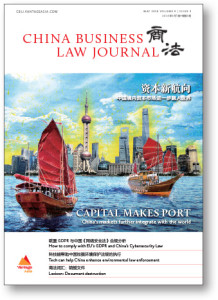Against the backdrop of further opening up of its economy, China has pushed through new reforms to attract Chinese unicorns to list on the A-share markets and widen cross-border capital market connections. Capital makes port explores recent key measures that aim to bring new vitality into the development of China’s capital markets. A recent hot topic among new-economy companies, especially unicorns with red-ship structures, is the Chinese depositary receipt (CDR), a new securities product that regulators want to introduce to the market soon in the future. The new mechanism allows companies to list on the domestic A-share market while keeping their red-ship structures. For new-economy enterprises already listed overseas, CDR saves them the long and complicated process of privatization and delisting before returning to list back in China. However, a bunch of regulatory details have yet to be clarified, some of which are complicated and require careful planning.

In recent weeks, you may have received lots of “keep in touch” emails, due to the EU’s General Data Protection Regulation (GDPR) effective from 25 May 2018. Concerns over data protection seem to be a global trend. Last year, China also consolidated its data-related regulations, with the new Cybersecurity Law effective on 1 June 2017. Heads or tails? conducts a detailed comparison between GDPR and the Cybersecurity Law, and provides practical guidance for compliance with both. Although the two regulations have a lot in common, they differ in many ways as well. Companies doing business related to the two jurisdictions need to have a comprehensive understanding of both regulations to ensure compliance.
China has also shown an unprecedented commitment to fighting pollution in recent years. Regulations on environment protection are getting tougher, with the revised Environmental Protection Law taking effect in January 2015, and Environmental Protection Tax Law becoming effective in January 2018. But the question is whether the enforcement is effective enough? China’s pollution war outlines the problems China faces in putting the requirements of its environment laws into practice. Most importantly, the article looks into the potential of environment technologies to assist China in law enforcement.





















